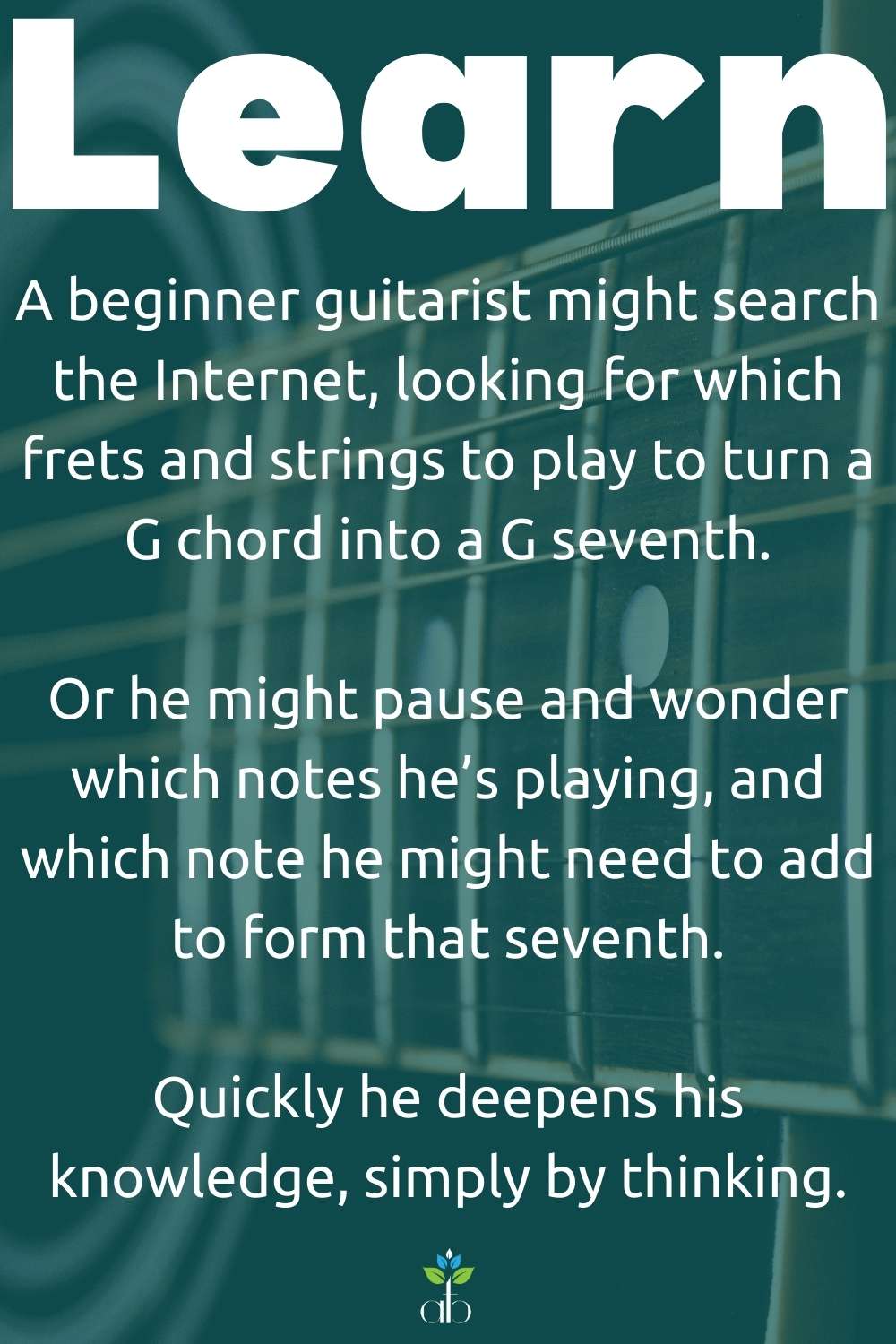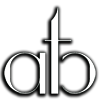Episode 471
Learn For Yourself

In this age of information, when we’re curious about something it can be easy to pull out a smartphone and search for what we’d like to know. The ease of access to information means we don’t always have to stop to think any more.
There are many things that are valuable to figure out for ourselves, without the use of Google. We can engage our memory, our logic, and our creativity to fill those gaps in our knowledge. Whether we’re right or wrong, we have pumped juice into those forgotten parts of our brains, again awakening that potential.
For example, a beginner guitarist might wonder how to add a seventh note to a G chord. He could look it up, or he could stop and think about which notes are being played on which strings, and which fret he might finger to add that F note to form the seventh chord.
Then there are things which an Internet search won’t yield easy answers. For example, the feeling of a chord progression going from the first chord to the fourth, and back to the first. Nobody else can tell us exactly how that feels. We must feel it for ourselves, noticing with attention and purpose.
Hosts & Guests
Kurt Robinson
Transcript
Welcome, beautiful thinkers!
I’d like to talk to about learning for yourself.
So a few months ago, I bought a ukulele and a stunt to explore that musical realm once again, returning to my old companion, to see how it was doing, to see how I was doing, and enjoying singing and playing to myself learning new songs.
And it was very interesting.
There are things about music theory, which I know some basic things which I learned many years ago, in technical college when I was studying audio engineering or sound production.
And other things, I guess I discovered for myself, I started to wonder, “What are those things that I don’t know?”
So for example, when I’m playing a chord, on a ukulele, I know more or less, this peripheral awareness of which notes make up the chord.
Because having played on keyboard, I can see it quite clearly.
And I started to imagine, in my mind, which notes I was playing on a keyboard and started to think, which frets, which strings, produce which notes to form which chords.
And I thought, “That’s very interesting.”
I played guitar for many years.
And I wondered, for so many years, I never stopped to think or rarely stop to look closely at the fretboard and think which string is producing exactly which note.
And if I did, I would be able to improve my fingering and think which chord Am I actually creating a mes around.
And even if I invent a new chord, or invent some fingering I’ve never seen before, I will be able to figure out which chord it actually was.
These things we can do.
And of course, we can go on the internet easily and find chord diagrams.
It’s very easy now, easier than ever.
I used to have a chord diagram, chart up on my wall to learn the guitar chords.
But now we can just look on the internet for all very easy.
So easy, in fact, maybe sometimes it’s too easy.
We can explore these things for ourselves, you can ask how our knowledge can be expanded by using our intelligence by asking what’s just beyond the limits of our knowledge, how we might extrapolate, or even using the tools we have available in the external world, using them in ways that we hadn’t previously imagined.
And I started to think about these other questions.
For example, what is the fourth chord, or the fifth chord?
If you start in C, C, D, E, F, the F is the fourth.
The G is the fifth, just as in a famous song by Leonard Cohen.
“Goes like this the fourth, the fifth, the minor fall, the major lift.”
That’s a poetic technique known as prosody.
He is describing what is happening in the song as he’s playing it.
Now, we can begin to notice these things, not just in musi.
I can ask myself, “What does it feel like going from the first chord, in a chord progression, to the fourth?
And then back to the first, what does it feel like?
What emotion does it evoke?”
And I’m playing the chords, and I hear what is going on there.
You notice some of these things, that we can go on the internet and find so many things.
I can look up things about chord progressions and find that a one four or five chord progression sounds good, and it’s used in these pop songs.
But I won’t know exactly how it feels.
Until I hear it for myself.
That’s the thing that can make the difference.
Many times studying music production our teachers would tell us don’t hear with your eyes.
Because we would do these things.
When we’re at the mixing desk.
We increase the reverb.
And we put reverb to an amount which we think is reasonable.
We seen the knob at 23%.
And we say okay, that’s a good amount of reverb.
But sometimes I noticed when I was editing music in this way, I would say, “Yeah, that sounds good, that sounds better, now.”
Then I looked later, and I realized that knob wasn’t connected, that plugin was disabled or something like that.
I had heard nothing, I was not listening.
When we use our ears, we use our senses, engage our perspicacity, we begin to see what’s really going on.
And we can learn through our own experiences, through our own thoughts.
Maybe a lot of the things that we want to learn, that we don’t even know we might like to learn are available to us simply by observing and thinking.
We might remember more details about history than a written on Wikipedia.
If we pause to consider or recall, or imagine even how things might have happened.
Imagine what kind of economic influences certain countries were imposing on others on military force.
What unspoken agreements?
What cultural values influenced history, to allow us to arrive where we are today?
We can know these things, just from books.
We can’t learn these things from the internet.
These are things yet to be discovered and rediscovered things within us.
And we have the keys to learn for ourselves.

New Episodes Every Weekday
11am Mexico City time
10 min episodes Monday - Thursday
1 h interview episode on Fridays
As an Amazon Associate I earn from qualifying purchases.
Stay Beautiful &
Stay Connected
